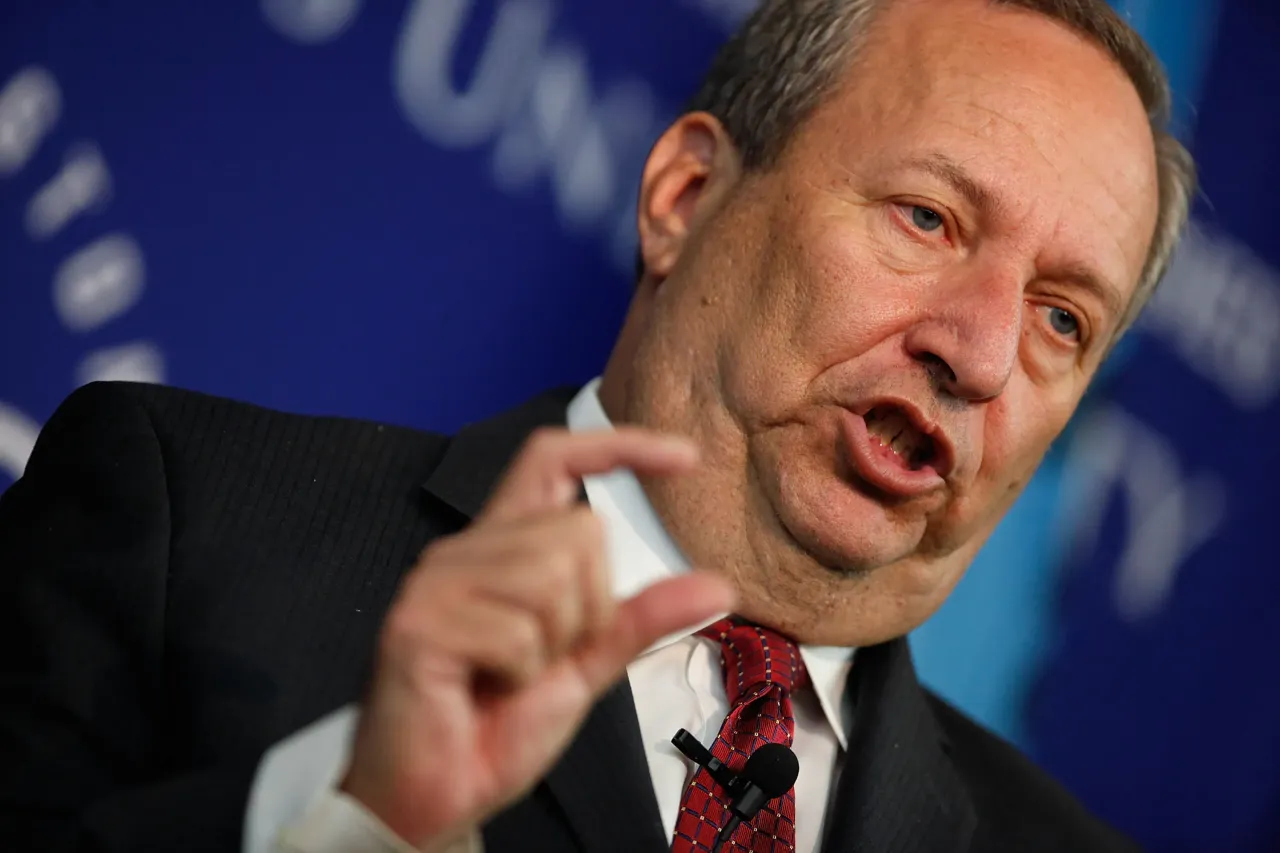Advertisement|Remove ads.
Lawrence Summers Warns Trump’s Push For Deep Fed Rate Cuts Risks ‘Massive Inflation Psychology’

Former Treasury Secretary Lawrence Summers on Thursday pushed back against President Donald Trump’s notion of steep rate cuts, warning that it could trigger “massive inflation psychology” despite providing a short-term economic jolt.
“I’m not aware of any economist anywhere near the mainstream who is supporting anything like 1% rates in the current environment,” Summers told Bloomberg. Such a move “might create some temporary boom in the economy, but would do so at the cost of a massive inflation psychology.”
The markets trended higher on Thursday morning after whiplash from reports suggesting that Trump may be closing in on firing Federal Reserve Chair Jerome Powell, followed by his denial to the press. “No, we’re not planning on doing anything,” Trump told reporters on Wednesday.
The SPDR S&P 500 ETF (SPY) and the SPDR Dow Jones Industrial Average ETF (DIA) rose 0.4% in morning trade, while the Invesco QQQ Trust Series 1 (QQQ) jumped 0.7%.
Summers noted that Wednesday’s events offered “a kind of experiment, in a small way,” into the potential fallout from Trump’s desired monetary approach. Still, he said he doesn’t believe the president will follow through on firing Powell, whose term runs through May.
“I think that the market consequences would be fairly immediate and quite severe,” Summers said, adding that Treasury Secretary Scott Bessent would likely recognize the risk.
His comments come on the heels of President Trump calling on Powell to lower interest rates by as much as three percentage points, claiming that it could save the government more than $1 trillion every year.
“Fed should cut Rates by 3 Points. Very Low Inflation. One Trillion Dollars a year would be saved!!!” the President said in a post on Truth Social.
Summers also warned that Trump’s fiscal and monetary strategy risks setting off a self-reinforcing cycle where widening deficits would push up borrowing costs, which in turn would increase deficits and further pressure rates.
He flagged rising long-term bond yields as “ominous indicators about our nation’s credibility over the medium term,” adding that the dollar’s recent drop – the steepest first-half decline since 1973 – reflects market unease. “You have to view our nation’s fiscal situation with considerable trepidation and concern,” he said.
On inflation, Summers said recent data showing muted price increases may not fully capture the lagged effects of tariffs. “I would have expected more inflation,” he said. “But it’s early days. I wouldn’t want to rush to a judgment that these tariffs are innocuous.”
Most Fed policymakers have echoed Powell’s stance to hold off on reductions in rates for now until they’re better able to judge any inflationary impact from Trump’s tariff hikes. Dallas Fed President Lorie Logan this week said monetary policy remains appropriate, adding, “short streaks of good news have raised hopes before, only to disappoint when inflation rebounded.”
For updates and corrections, email newsroom[at]stocktwits[dot]com.











/filters:format(webp)https://news.stocktwits-cdn.com/large_wall_street_bull_OG_jpg_791f8f3b40.webp)
/filters:format(webp)https://news.stocktwits-cdn.com/IMG_8805_JPG_6768aaedc3.webp)
/filters:format(webp)https://news.stocktwits-cdn.com/Getty_Images_2231786706_jpg_5f9940e890.webp)
/filters:format(webp)https://st-everywhere-cms-prod.s3.us-east-1.amazonaws.com/unnamed_jpg_9dff551b50.webp)
/filters:format(webp)https://news.stocktwits-cdn.com/large_Getty_Images_2259293616_jpg_38a91a25a8.webp)
/filters:format(webp)https://news.stocktwits-cdn.com/large_Webull_stock_resized_jpg_48b42f4c8f.webp)
/filters:format(webp)https://news.stocktwits-cdn.com/jaiveer_jpg_280ad67f36.webp)
/filters:format(webp)https://st-everywhere-cms-prod.s3.us-east-1.amazonaws.com/large_Morgan_Stanley_resized_Mar_19_jpg_784f532fd2.webp)
/filters:format(webp)https://news.stocktwits-cdn.com/large_Getty_Images_2192180432_jpg_5a4c947a6a.webp)